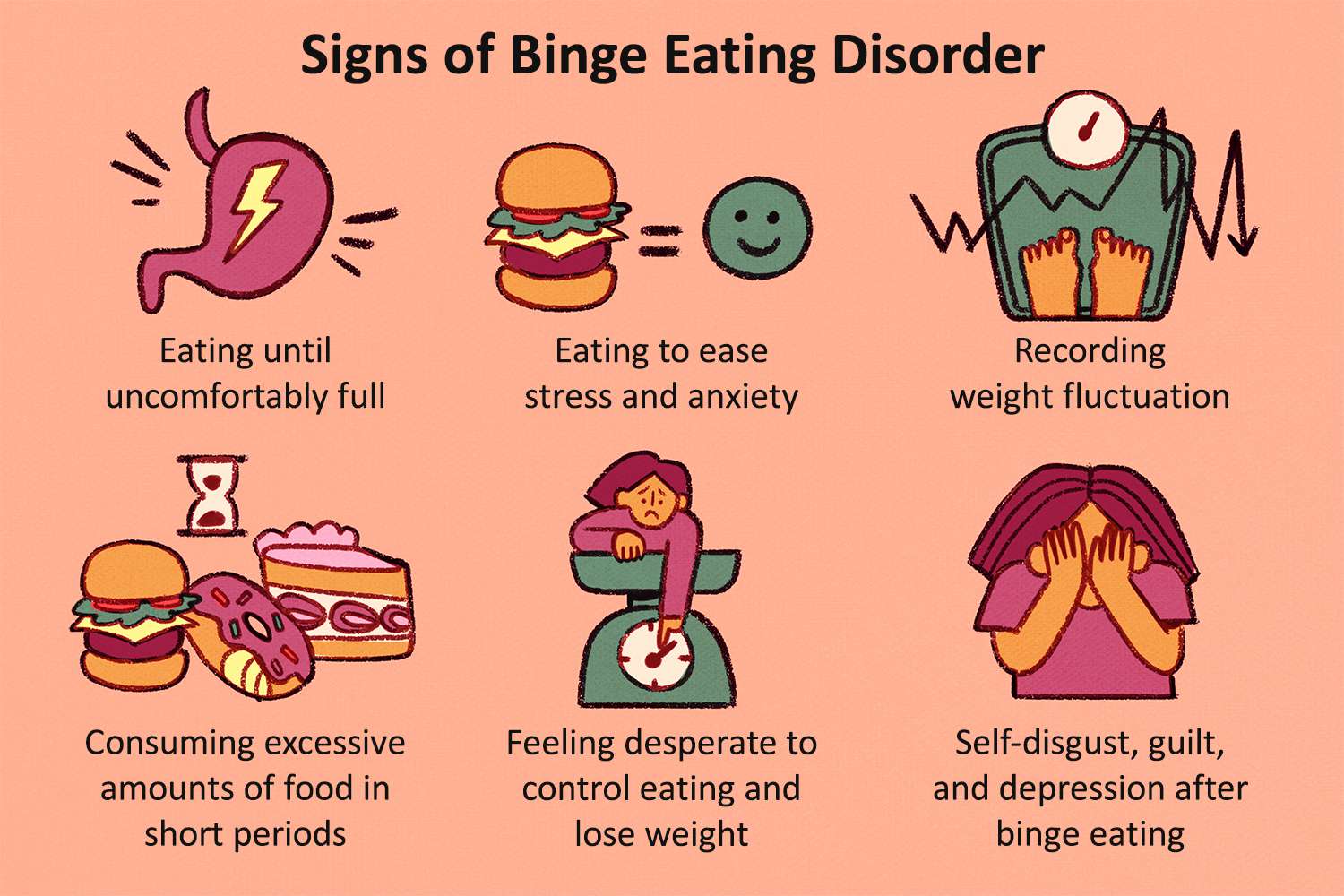Binge eating disorder (BED) is a serious eating disorder characterized by recurrent episodes of binge eating, which involves consuming large quantities of food within a short period of time and feeling a sense of loss of control over eating during these episodes. Unlike bulimia nervosa, individuals with BED do not typically engage in compensatory behaviors, such as purging or excessive exercise, to “undo” the effects of the binge. This can lead to significant weight gain, which can have serious physical and psychological consequences.
The causes of binge eating disorder are complex and multifactorial, involving a combination of biological, environmental, and psychological factors. Genetic predisposition, brain chemistry, and hormonal imbalances have all been implicated in the development of BED. Environmental factors such as stress, trauma, and negative body image may also contribute to the development of BED. Additionally, personality traits such as impulsivity, low self-esteem, and difficulty managing emotions have been found to be associated with an increased risk of binge eating.
Diagnosing binge eating disorder involves a thorough evaluation by a mental health professional, as well as a medical evaluation to assess the physical consequences of the disorder. The diagnostic criteria include recurrent episodes of binge eating, a sense of loss of control over eating during these episodes, and significant distress or impairment as a result of the binge eating.
Treatment for binge eating disorder typically involves a combination of psychotherapy, nutritional counseling, and medical management. Psychotherapy, particularly cognitive-behavioral therapy, can help individuals with BED develop healthier attitudes towards food and their bodies, and can help them address underlying psychological issues such as low self-esteem, anxiety, or depression. Nutritional counseling can help individuals with BED learn healthy eating habits and develop a positive relationship with food. Medical management may be necessary to address physical complications such as obesity, high blood pressure, or diabetes.
In severe cases of binge eating disorder, hospitalization may be required to address physical complications and provide around-the-clock support. This can be particularly important in cases where the individual’s physical health is at risk or they are resistant to treatment.
Prevention of binge eating disorder involves promoting healthy attitudes towards food and body image, and addressing societal pressures to conform to unrealistic body standards. Educating individuals about the risks and consequences of eating disorders can also help to raise awareness and reduce the stigma associated with seeking treatment.
So, the binge eating disorder is a serious and complex eating disorder that requires a comprehensive approach to diagnosis and treatment. Addressing the underlying psychological factors is key to effective management, and support from healthcare providers, family, and friends is essential for individuals living with BED. With appropriate treatment and support, many individuals with binge eating disorder are able to achieve significant improvement in their symptoms and quality of life.






